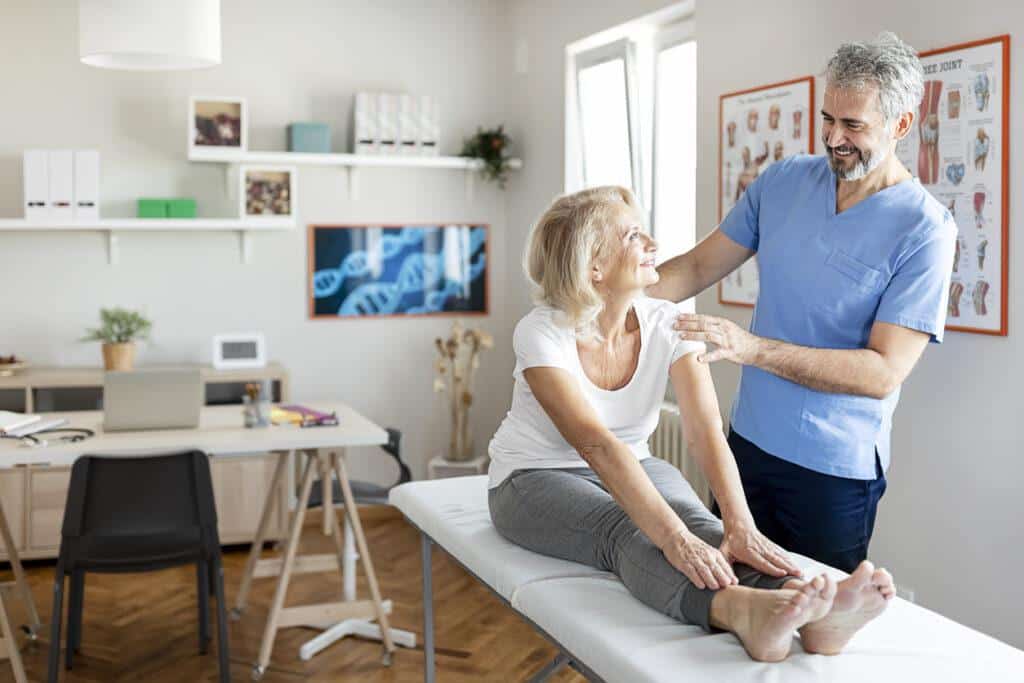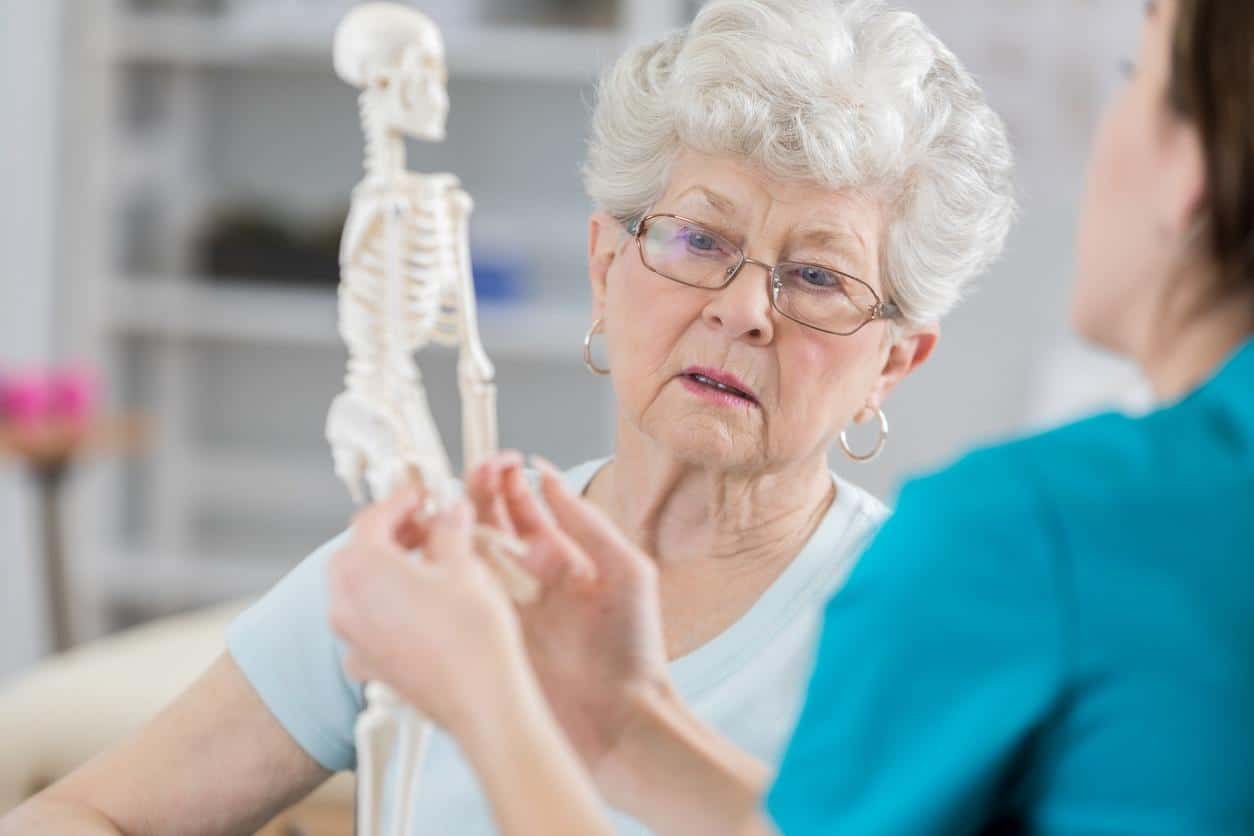According to the International Osteoporosis Foundation, IOF estimates, 10.2 million adult Americans have osteoporosis, with over 80% being women. You may be wondering, why are women the most vulnerable? Simple! Females usually start with lower bone density than men, plus the gradual estrogen loss also increases the risk of infection.
Although we can barely change the causative factors like genetic composition, aging, or sex, you can take actionable steps to prevent the disease. These include exercising your bones, getting enough calcium & vitamin D, eating healthy foods, maintaining a healthy lifestyle, and more. Let’s drill deeper into each of these preventative tips in the post below.
Regular Exercise
It is common knowledge that exercising helps us keep fit and build muscles. But did you know that you can strengthen your bones through regular exercising too? In particular, weight-bearing and resistance exercises are overly essential in boosting bone density hence preventing osteoporosis.
Weight-bearing exercises
These are exercises where you use your legs and feet to support your body weight. They include high-impact activities like aerobics, running, jogging, dancing, yoga, climbing stairs, hiking, and playing tennis. When performing these exercises, be sure to put on footwear equipped with impact-resistant. Walking boots and trainers are weight-bearing perfect exercising shoes. Remember, cycling or swimming doesn’t qualify for this category.
Resistance exercises
These are exercises where you leverage your muscle strength to strengthen your bones by pulling and relaxing the tendons. Aside from helping prevent osteoporosis, resistance exercises also boost flexibility, thus lowering the chances of a fall, which is one of the leading causes of the disease in the first place. Common resistance exercises include press-ups, weightlifting, using elastic resistance bands, and using gym equipment.
N/B: If you’ve recently been diagnosed with osteoporosis, it’s only wise that you consult your GP or healthcare practitioner before undertaking any of the exercises discussed above. You want to ensure that the exercise program is appropriate given your current health condition.
Healthy Feeding
There’s no denying that eating a balanced diet is an excellent health booster for anyone, whether sick or in good health. Aside from preventing deficiency diseases like marasmus and kwashiorkor, healthy eating also prevents more severe infections like diabetes, obesity, and osteoporosis.
In particular, if you’re looking to prevent osteoporosis, calcium-rich foods should be your favorite. These include:
- – Calcium-fortified foods like milk, yogurt, cheese, dried fruit, tofu, and cereal
- – Dark green leafy vegetables like broccoli and kales
- – Egg yolks
- – Red meat
- – Liver
It’s critical to note that the protein available in food products like liver and fish goes to every body cell, including bones. Eating these proteins at the right proportion significantly increases mineral bone density hence preventing osteoporosis. And by the right proportion, we mean taking 0.4 grams per body weight pound. For instance, if you weigh 100lbs., you need a daily protein intake of around 40 grams.

Get the Right Amount of Calcium and Vitamin D
Getting the right amount of calcium and vitamin D helps build strong, dense bones at a young age and keeps them healthy as you become older. Calcium is particularly more essential because if your body develops a deficiency, it begins breaking down the bones to get enough of it (calcium), exposing you to osteoporosis.
On top of eating the calcium-rich foods we’ve mentioned above, you can also prevent osteoporosis by taking the right proportion of dietary supplements. That is:
- – 1000mg for women aged 50 years or younger
- – 1200mg for women aged 51 years or older
Vitamin D is equally essential for bone strengthening because it helps your body absorb enough calcium. The recommended amount of vitamin D consumption for adults is ten micrograms per day.
The most natural way of getting vitamin D is by exposing your skin to the sunlight. However, we can’t rely on it every day due to factors like seasonal changes, skin conditions, or Agoraphobia. The good news is that you can still get vitamin D from natural food sources such as:
- – Fatty fish like tuna, salmon, and mackerel
- – Red meat
- – Egg yolk
- – Fortified foods like cereal, milk, and orange juice
- – Dietary supplements
Avoid Unhealthy Life Habits
Sometimes preventing health conditions like cancer, diabetes, or osteoporosis is usually more about choices. The choices that we make regarding our lifestyles can either improve or deteriorate our health. For instance, if you’re looking to prevent osteoporosis, you only need to make the following adjustments:
Quit smoking
Smoking prevents the hormone estrogen from working well in the body, thus doubling the chances of fractures or bone loss, ultimately increasing the risk of osteoporosis.
Limit alcohol consumption
If you must drink at all, then ensure not to take more than 14 units per week or not more than two bottles per day. Anything above that increases the risk of bone loss. You also want to watch yourself not to fall victim to binge drinking.
Avoid the female athlete triad
Female athlete triad is a syndrome resulting from exercising intensely or playing action-packed sports. It’s common among young women and can lead to eating disorders, thin bones, or menstrual cycle disruption. Female athletes who experience problems getting their periods have lower estrogen levels, which reduces the bone mass.
Limit soda intake
By replacing calcium-rich drinks like soy milk with carbonated soft drinks like soda, females risk losing bone mass. Such drinks (especially cola) usually contain extra phosphorus believed to limit calcium absorption by the body.
Limit caffeinated drinks
Excessive caffeine intake restricts our bodies from absorbing enough calcium, posing the risk of bone mass loss. Do not drink more than three cups of coffee, tea, cola beverages, or chocolate drinks.
Over to You
Now it’s your turn to implement these actionable tips and throw the risk of osteoporosis off the window. All you have to do is exercise at least thrice per week, maintain a healthy diet, feed on vitamin D and calcium-rich foods, and avoid dangerous habits like smoking and binge drinking.
Are you concerned about bone mass loss, and you suspect that it might be osteoporosis? Worry no more; we’re here to help. Women’s Imaging Specialists are a team of certified healthcare experts providing state-of-the-art care, early detection, and osteoporosis prevention. Contact us today for bone density screening and an array of other services.


